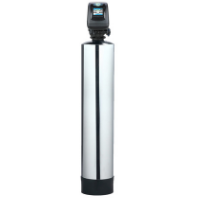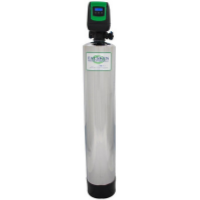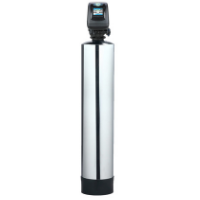Water Conditioners

The Real Truth About Water Conditioners
- These units do not produce soft water. If you test the water hardness entering the unit and the water hardness leaving the unit, there will be no reduction in the hardness.
- These units should never be sold as a solution for hard water issues.
- Many variables need to be taken into account when stating how long a water treatment device will last: water quality, flow rate, water usage, consumer expectations, etc. No professional water treatment person would ever make any claims on the length of time a unit will perform without first having the information above.
- Most of the bottled water sold today is produced using the reverse osmosis process. These brands include Aquafina, Dasani, Sparkletts, Nestle Pure Life, Kirkland (Costco), Members Mark (Sam’s Club), your corner water store, any drink bottler or food manufacturer will use RO water to mix with their products.
- The water will taste better after going through these units because the chlorine/chloramines have been reduced. The water by no means comes close to the water quality of the RO examples above. For that reason, we would not make a claim that these units “will provide bottled quality water throughout the house”.
- These units will not protect a tankless water heater or any other water heating device from the effects of hard water. That’s because the minerals left in the water are what become hard water scale.
- If you are a consumer that has had a water softener prior in your life, you instantly will tell the difference between a softener and conditioner and will not be happy with the performance or capabilities of a water conditioner.
Why Would Anyone Purchase One of These Units?
Well, a conditioner shouldn’t be purchased to solve hard water issues, but they can provide a very important role in home water treatment. Conditioners reduce the chlorine/chloramine content in the water. It is well known that these elements in the water are not a good thing. If you are concerned about the effects chlorine & chloramines in your water, suffer from dry or other skin conditions, and want to improve the taste and/or eliminate the odor from your water, a water conditioner is a good choice for you.
Install a water conditioner along with a water softener and you now have not only provided protection and extended the life of all of your water using appliances, plumbing, fixtures and dishes, but also have provided aesthetically pleasing and better quality tasting water for your family.
What Can I Expect From A Water Conditioner
- Better Tasting Water Throughout the House
- Reduces the Chlorine and Chloramine Content for Showering, Bathing and Cooking
- Filters Out Dirt and Sediment, Automatic Self Cleaning, No Filters to Replace
- Great for Children and Adults with Sensitive Skin
- Inhibits the Growth of Bacteria, Fungi, Algae and Mold
- Reduces Some Heavy Metals Such as Lead, Copper, Iron, Nickel etc.


